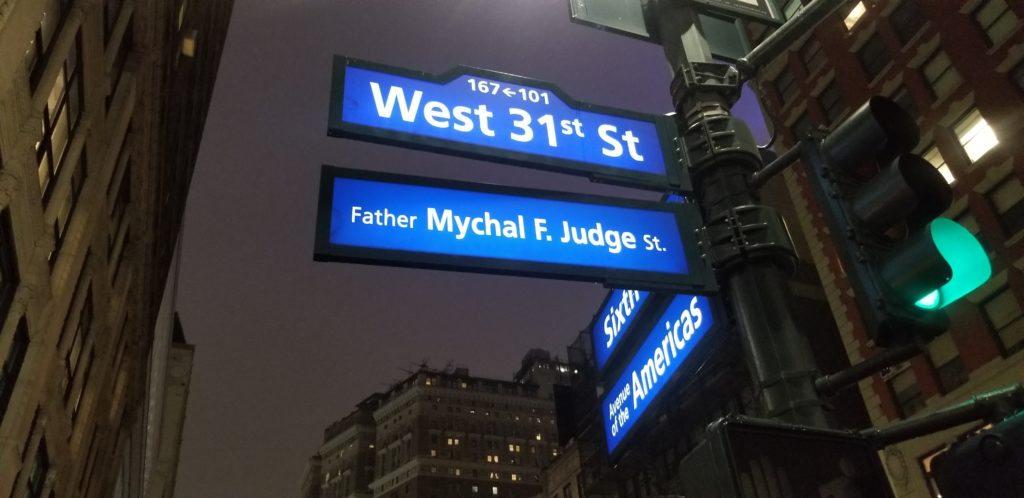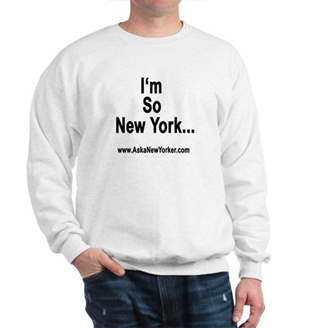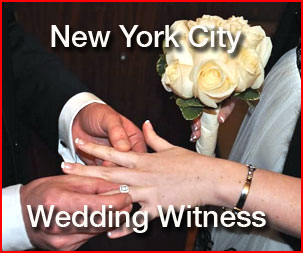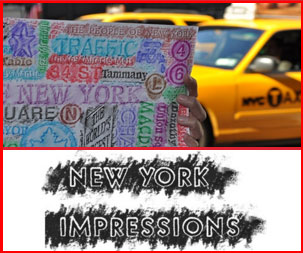
In early March of 2000, I found my way from Ozone Park to Sunnyside, Queens, for the inaugural St. Pat’s for All Parade. The parade was unique because it welcomed LGBT groups to participate. Most other St. Patrick’s parades at the time did not.
It was the first St. Patrick’s parade I marched in, representing a human rights group that monitored the contentious marching season in the North of Ireland. The parade included many of the standard Irish groups and local politicians but also featured an LGBT marching band, a traditional Korean dance troupe, and other organizations that are not strange in Queens but do stand out in a St Patrick’s Day parade. The parade gathered news coverage (Hillary Clinton was there, running for Senate) and a few religious protesters upset that St. Patrick’s name was being use to make friendly with the gays.
During the march, I noticed a Catholic priest in a brown robe shaking hands with people aside the parade route. Oh no, I thought to myself, what litany of lies did the parade organizers tell this poor priest to get him here? He’s going to have a heart attack when he sees the gay marching band.
But that priest did not have a heart attack upon seeing the gay marching band. The priest was Father Mychal Judge.
Father Judge is most famous for being the New York Fire Department chaplain who perished in the September 11 attacks; he is listed as the first official casualty of that day. But long before his untimely death, Father Judge was a bridge between the multitudes of New York communities. At a time of increasing hostility between the Catholic Church’s leadership and LGBT groups, he made it part of his mission to minister to gays and lesbians and people with AIDS. He was dedicated to helping the homeless and people suffering drug and alcohol addiction, and he led a peace mission in Ireland. Few others would have been able to shake hands with cross-wielding protesters and break bread with a gay marching band on that same morning in Queens.
In his last homily, delivered the day before he was killed at the World Trade Center, he spoke to firefighters in The Bronx. He spoke about the unpredictable nature of life and how everyone has their part to play, that each one of us has a place.
“That’s the way it is. Good days. And bad days. Up days. Down days. Sad days. Happy days.But never a boring day on this job. You do what God has called you to do. You show up. You put one foot in front of another. You get on the rig and you go out and you do the job – which is a mystery. And a surprise. You have no idea when you get on that rig. No matter how big the call. No matter how small. You have no idea what God is calling you to. But he needs you. He needs me. He needs all of us.”
September is freshly ended and with it, most of the commemorations of the September 11 attacks. One of the best traditions, the Stephen Siller Foundation Tunnel to Towers 5k, is held the last Sunday in September.
On a rainy October evening, I was making my way home from midtown after a long workday. A fire engine was driving down the street and was stuck at an intersection of 6th Ave. and 31st Street. Despite having the right of way, the firefighter at the wheel waved pedestrians across.
I discovered I was crossing Father Mychal Judge Street, a segment of West 31st that runs past his church, St. Francis of Assisi. It was named in his honor in 2002. FDNY Engine 1/Ladder 24 station is nearby. It would have been disrespectful to ignore the sign and continue on with the regular rush of the afternoon commute. I stepped out of people’s way and took a photo of the sign.
There are few New Yorkers who represent the resiliency and humanity of our city the way Father Mychal Judge did. His sacrifice has special meaning for firefighters and those who lost loved ones in the September 11th attacks, but the life he lived symbolizes the best of us and serves as an inspiration the world over. It always will.











